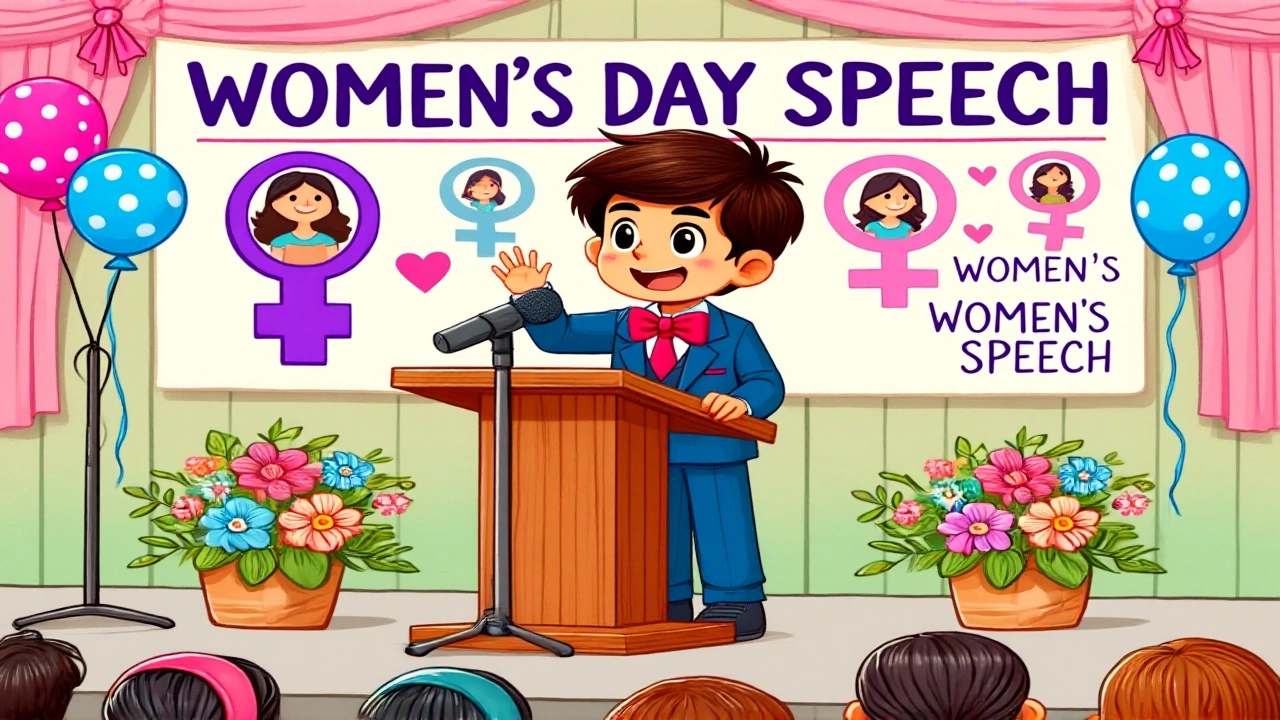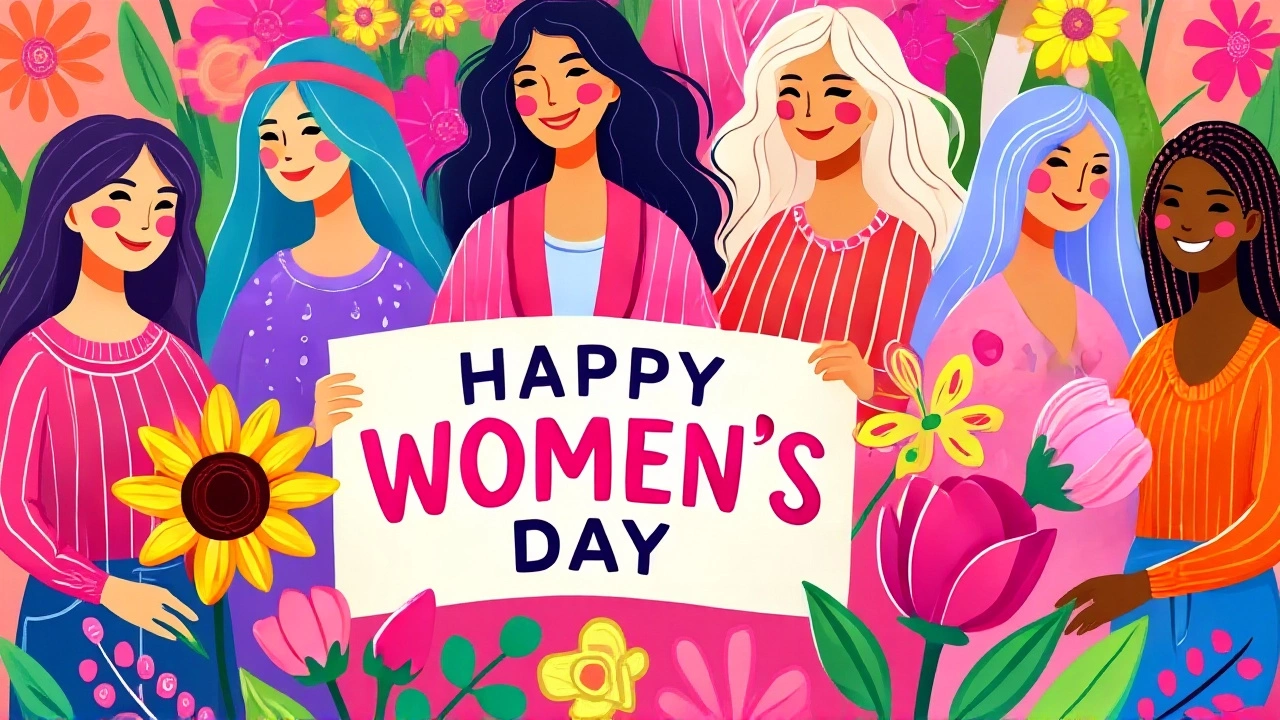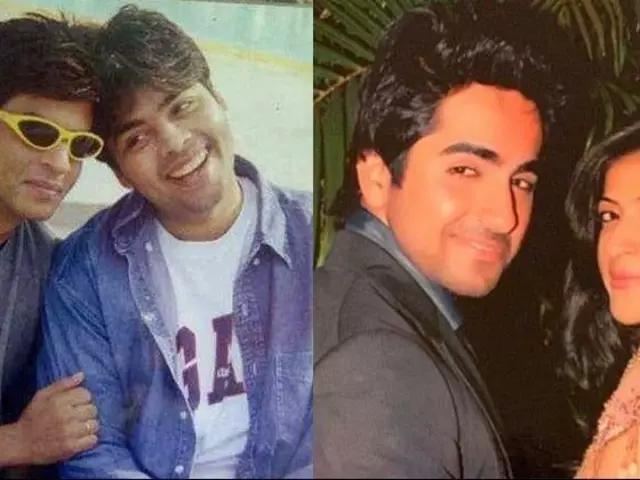India Announces Women Achievers Awards for March 8, 2025, Amid Global Celebrations

- Kieran Montague
- 21 November 2025
- 0 Comments
On December 12, 2024, the Government of India quietly released a notice announcing the Women Award to Women Achievers to be presented on March 8, 2025 — the same day the world celebrates International Women's Day. The timing isn’t coincidental. While the Indian announcement came months in advance, it aligns with a wave of global recognition events that have already begun unfolding, turning what could have been a routine ceremonial notice into part of a powerful, coordinated movement for women’s visibility. Here’s the thing: this isn’t just about handing out trophies. It’s about signaling — to families, to institutions, to girls growing up in villages and cities alike — that their potential is no longer optional.
Global Momentum Builds Ahead of March 8
Just one day before India’s planned ceremony, the International Paralympic Committee (IPC) unveiled its 2025 International Women’s Day Recognition Awards. Penny Briscoe CBE, a veteran leader from ParalympicsGB, received the top honor in Leadership. In the Emerging Leadership category, Zakia Khudadadi — the Afghan Paralympian who fled Kabul in 2021 and competed in Tokyo under the IPC flag — was honored. And the National Paralympic Committee of Iran was recognized for its institutional commitment. IPC President Andrew Parsons called the nominations "exceptional," but it was Khudadadi’s words that echoed louder than any medal. "Afghan women stand bravely against oppression," she said, her voice steady. "Their voices cannot be silenced." That same day, in a virtual event streamed across continents, the CGIAR Gender Equality and Inclusion Accelerator, alongside African Women in Agricultural Research and Development (AWARD), hosted a panel featuring Dr. Galie Alessandra of the International Livestock Research Institute (ILRI), Ms. Everlyne Nairesiae of Landesa, and Prof. Salome Bukachi from the University of Nairobi. The theme? "For ALL women and girls: Rights. Equality. Empowerment." Not a slogan. A demand.The UN’s 30-Year Challenge
The United Nations marked the occasion with a 1 hour, 46 minute, 5 second commemoration — a rare length for such events — underscoring how deeply the stakes have grown. This year marks the 30th anniversary of the Beijing Declaration and Platform for Action, a landmark agreement that promised women’s rights as human rights. Yet, progress has stalled. In many places, it’s regressed. The UN’s focus was blunt: fight for rights, dismantle patriarchy, and rebuild power structures so women aren’t just invited to the table — they own it. Education, employment, leadership — all are battlegrounds now.India’s Quiet but Potent Statement
The Government of India notice, posted on harprathmik.gov.in, doesn’t list criteria, deadlines, or even the number of awards. That’s odd. In a country where bureaucratic detail is usually exhaustive, this silence speaks volumes. Is this intentional? Perhaps. By keeping the process vague, the government avoids scrutiny — but also risks appearing performative. Yet the symbolic weight is undeniable. India, home to 660 million women, has long struggled with gender inequality in education, workforce participation, and political representation. Recognizing women achievers isn’t just about celebration. It’s about rewriting the narrative. Who gets seen? Who gets remembered? Who gets to be a role model?Among those already in the spotlight: Ekta, a Bangalore entrepreneur who, back in 2019, was named one of the Top 10 Most Promising Women Entrepreneurs. She’s a recipient of the Indian Achievers’ Award and the Goldman Sachs 10K Women program — proof that grassroots success can scale. Then there’s the team behind Saanidhaanam Assisted Living Facilities in Palghar, Maharashtra — a rare, community-driven initiative caring for disabled children after their parents pass, and elderly people with no family. Their work isn’t glamorous. It’s quiet. It’s daily. But it’s revolutionary.

What’s Next? The October Surprise
The momentum doesn’t stop in March. The GISR Foundation is planning the International Inspirational Women Award 2025 for October 4, 2025, in New Delhi. The event will include a Strategic Leadership Expert from Germany — a reminder that this isn’t just an Indian or even an Asian movement. It’s global. And it’s being led by women who’ve turned pain into purpose, isolation into influence.Why This Matters Beyond the Ceremony
Awards matter because they shift perception. When a 14-year-old girl in Jharkhand sees Zakia Khudadadi on TV — a woman who lost her home, her country, yet still competed — she doesn’t just see a Paralympian. She sees possibility. When a rural teacher in Bihar learns about Saanidhaanam’s work, she might start thinking: Could I do this? Could we start something here?There’s a quiet revolution happening. It’s not in parades or protest signs. It’s in the quiet persistence of women who show up — in labs, in classrooms, in care homes, in boardrooms — and refuse to be erased. The Government of India may not have spelled out the rules. But by choosing to honor women this year, it’s joined a chorus that’s been growing for decades. And that chorus? It’s getting louder.
Frequently Asked Questions
Who is eligible for the Women Award to Women Achievers by the Government of India?
The official notice does not specify eligibility criteria, deadlines, or selection committees, leaving the process intentionally opaque. However, given the global context and past Indian award patterns, recipients are likely to be women who have demonstrated exceptional leadership in fields like education, healthcare, entrepreneurship, or social justice — particularly those working in underserved communities. The absence of public guidelines may reflect political caution, but also risks undermining transparency.
How does the 2025 theme 'For ALL women and girls' differ from previous years?
Previous themes often focused on economic participation or violence prevention. This year’s theme explicitly centers on rights as non-negotiable — not privileges. It’s a direct challenge to rollback efforts in places like Afghanistan and parts of South Asia, where girls’ education is being restricted. The UN and IPC both emphasized dismantling systemic patriarchy, not just increasing representation. This shift moves beyond inclusion to structural change.
Why is Zakia Khudadadi’s recognition so significant?
Zakia’s story embodies resilience under extreme oppression. After being evacuated from Afghanistan in 2021, she competed in Tokyo 2020 as a refugee athlete. Winning an IPC award in 2025 — while the Taliban still bans Afghan women from sports — is a quiet act of defiance. It signals to the world that even when states try to erase women, global institutions won’t look away. Her award isn’t just personal; it’s political.
What role do organizations like AWARD and ILRI play in advancing gender equality?
AWARD and ILRI don’t just fund women — they restructure systems. AWARD trains female agricultural scientists in Africa, ensuring they lead research on climate-resilient crops. ILRI integrates gender analysis into livestock policy, recognizing that women manage 70% of smallholder livestock in sub-Saharan Africa yet rarely own the animals. These aren’t charity projects. They’re institutional reforms that change who gets to define solutions.
Is the October 2025 award in New Delhi connected to India’s March award?
No official link has been declared, but the timing suggests coordination. The GISR Foundation’s event in October targets international women leaders, including STEM experts from Germany, signaling India’s intent to position itself as a global hub for gender equity discourse. It may serve as a follow-up to March’s domestic recognition — turning national celebration into international influence.
What impact could India’s award have on rural women?
If the awards spotlight women like those behind Saanidhaanam — who care for disabled children and elderly without families — it could shift public perception. Rural women are often invisible in national narratives. Recognizing them publicly validates their unpaid labor and challenges the stigma around disability and aging. That visibility might inspire policy changes in social welfare, not just symbolic honors.


